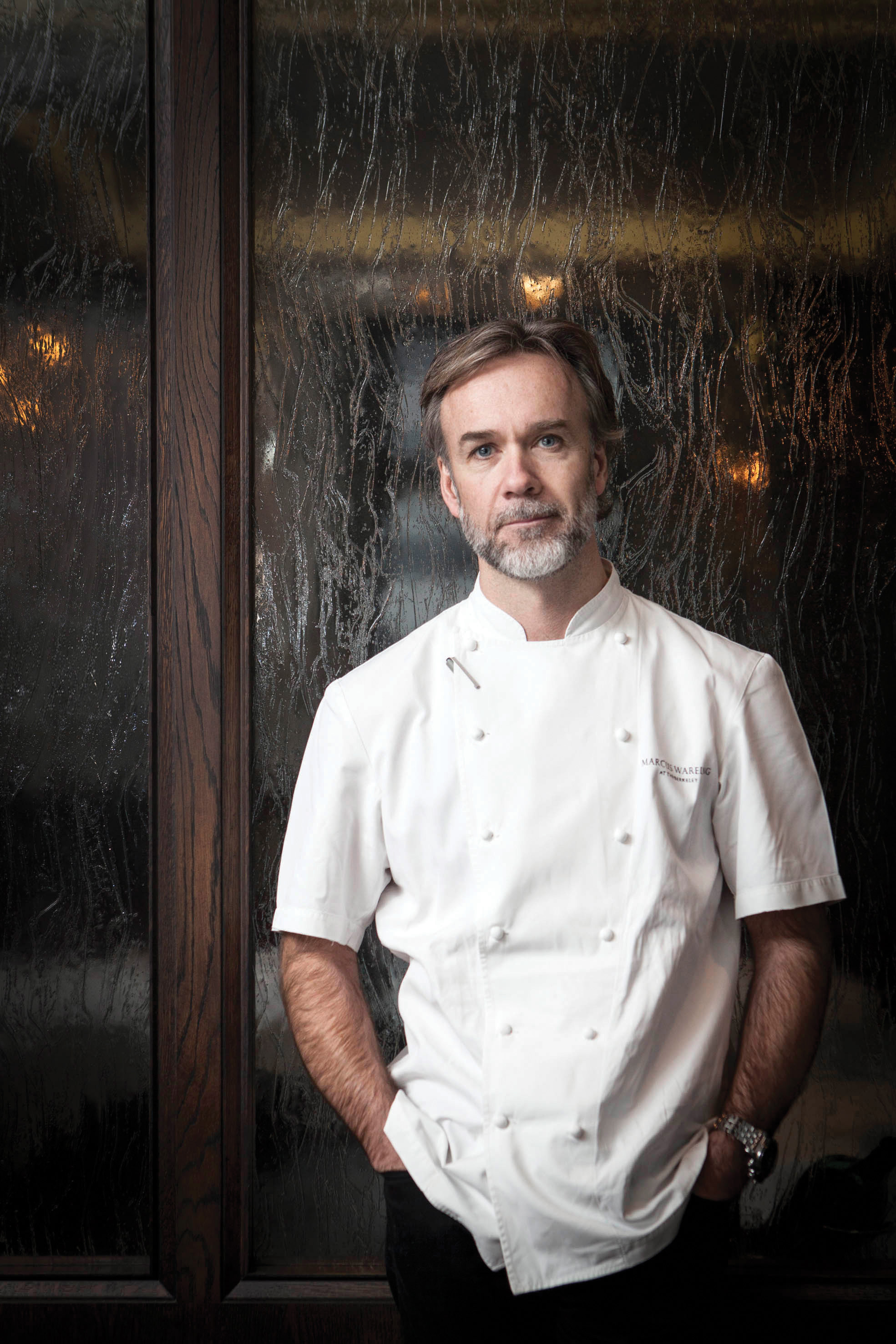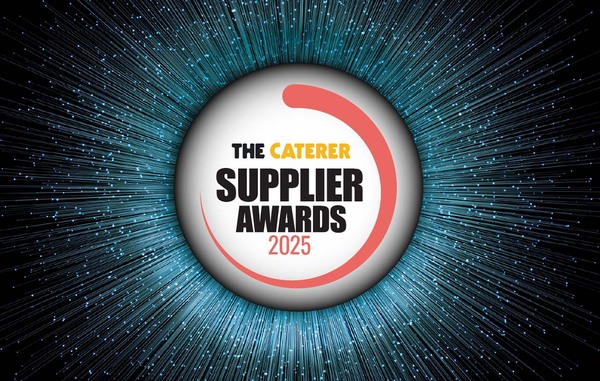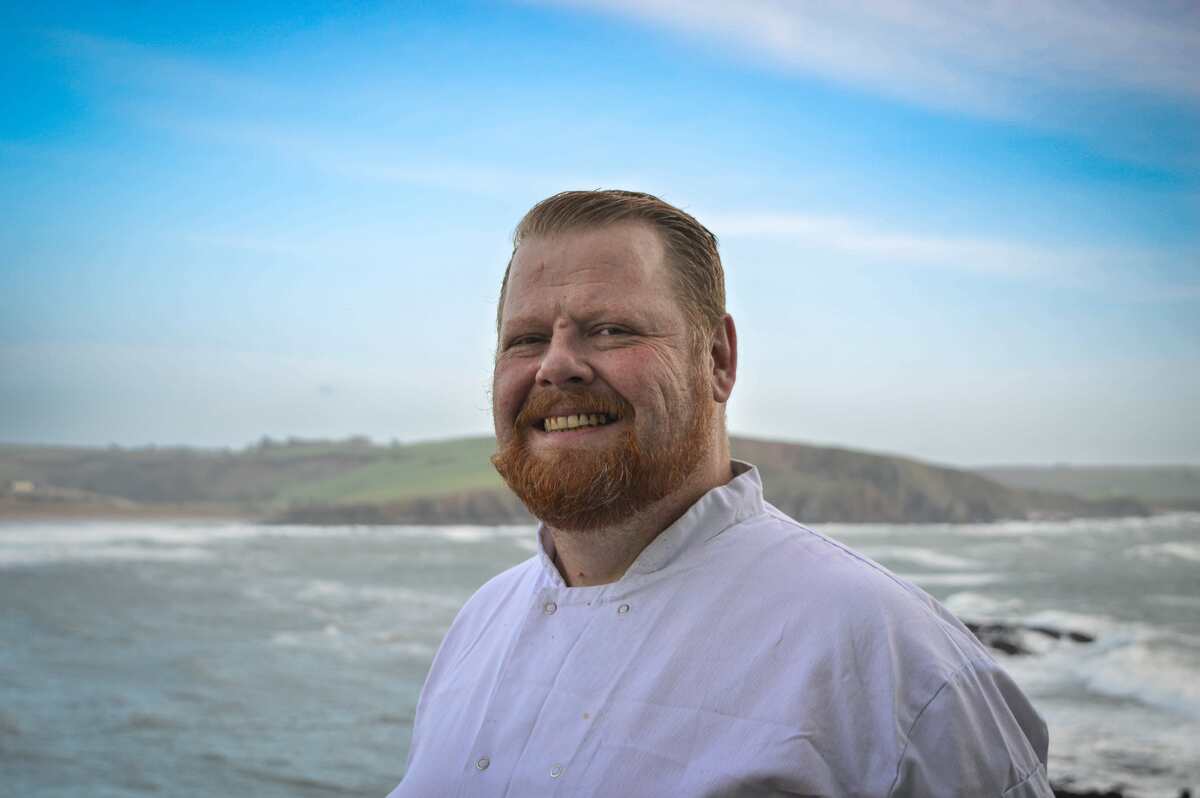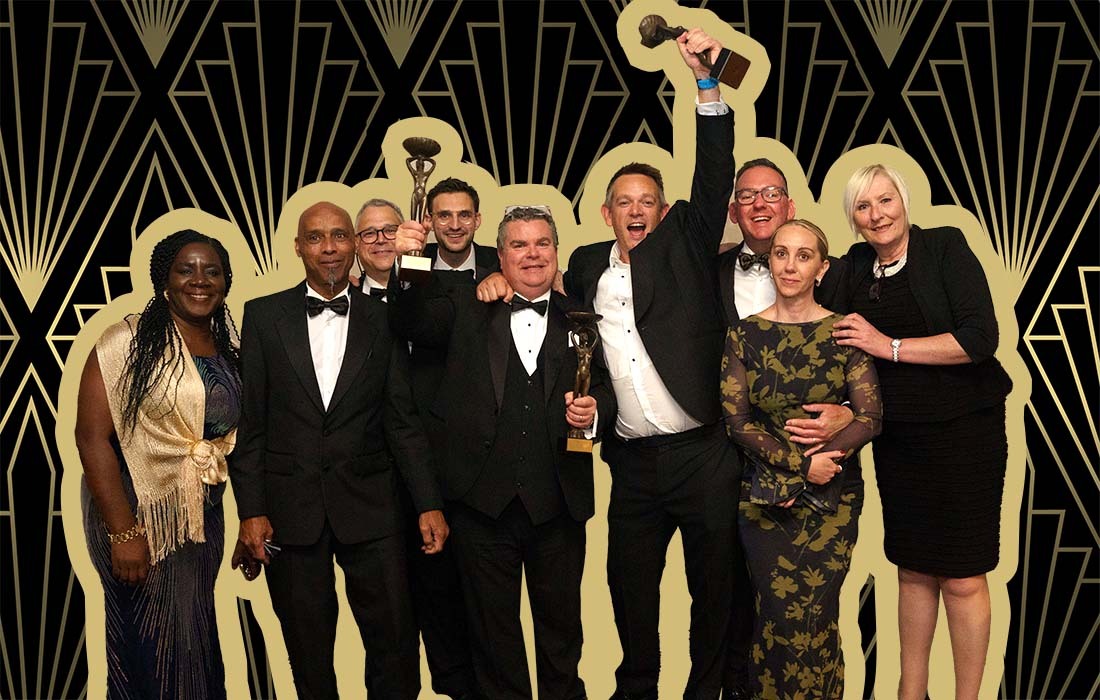State of the nation: Marcus Wareing discovers what will make the dining public return to restaurants
A survey by chef Marcus Wareing has revealed the majority of consumers have an appetite to dine out again. Emma Lake discovers which measures will instill most confidence in diners when they return to restaurants
While consumers have widespread concerns about returning to restaurants, the majority do not want to be served by staff in gloves and facemasks, a survey conducted by chef Marcus Wareing has found.
The survey, shared online and taken by 8,970 people, showed an appetite to dine out once again. Encouragingly, 54% of respondents said they would spend the same amount of money on dining out as they did before the government ordered a lockdown to control the spread of Covid-19, while 11% even said they would spend more.
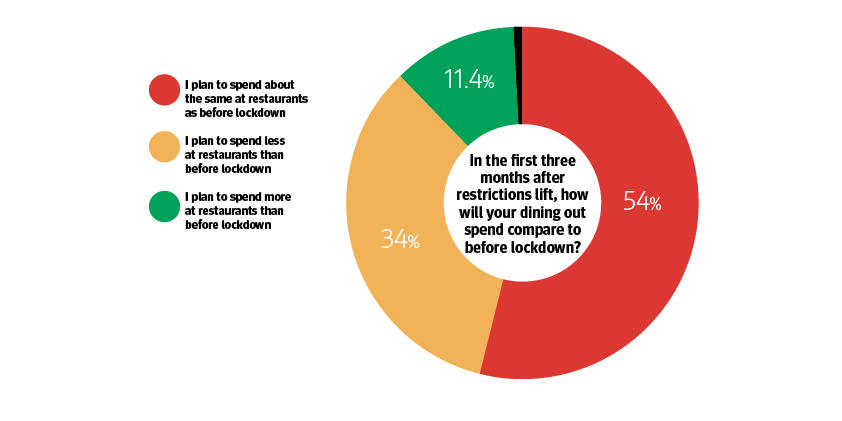
Wareing, who is behind London restaurants including the Michelin-starred Marcus at the Berkeley in Knightsbridge, the Gilbert Scott at the St Pancras Renaissance hotel and Tredwells in Covent Garden, told The Caterer: “It was really nice to see that people are willing to go out and eat, but there need to be some rules in place and a level of understanding.
“I think we’re going to be in a difficult position to meet everybody’s concerns and what we will need to do is look at the key points of the survey and put into place what we believe works for our individual restaurant. So, for instance, we won’t take people’s coats – they will go to the cloakroom of the hotel themselves – and we’ll have paper menus on the table. We will have as little close proximity with people as possible.”
Vote with your feet
Diners were asked how concerned they were about dining out when lockdown is lifted on a scale of one to 10. Answers were spread relatively evenly across the scale, with 43.8% of people selecting numbers one to five inclusively; however, seven and eight were narrowly the most selected numbers at 14.4% and 15.2% respectively.
Similarly, when asked about particular areas of concern, all options listed received some votes, but no single issue made more than 36% of the recipients ‘very concerned’. Respondents were most worried about other guests, with 36% of people ‘very concerned’ and 54% ‘somewhat concerned'.
Restaurant employees elicited a slightly less cautious response, with 17% ‘very concerned’ and 58% ‘somewhat concerned’. These feelings were borne out later in the survey where 60.3% said the option of a private dining room would make the prospect of dining out more attractive.
Guest bathrooms did emerge as a clear area where guests will require reassurance, with 33% ‘very concerned’ and 47% ‘somewhat concerned’. However, travelling to a venue and entering and exiting the dining room caused minimal worry, with 48% saying they were ‘not concerned at all’ in relation to either.
Gloves off
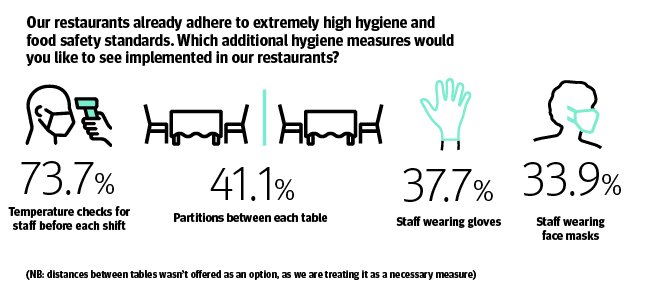
Additional hygiene measures will be expected when restaurants reopen and 73.7% of respondents said they would like to see temperature checks for staff at the beginning of each shift. Less enthusiasm was shown for partitions between tables, which 41.1% said they would like to see, while a requirement for staff to wear gloves or masks was even less well received, with 37.7% and 33.9% of people respectively saying they would like to see these measures.
The feelings regarding PPE was welcome news to Wareing, who said: “Staff wearing facemasks and gloves was one thing I was dreading and I don’t think I’ll be expecting my staff to put a facemask on. I think the temperature checks are a good idea, although we’ll have a bigger problem in the winter months when the common cold will be around. How will we know who has a cold or coronavirus in six months? There will be more massive hurdles to get ourselves over.”
Similarly, a majority of guests said they would ‘not be comfortable at all’ with being asked to wear gloves or a mask (while not eating), with 65% and 62% opposing the suggestion respectively.
At the other end of the scale, 91% were ‘very comfortable’ with being asked to settle their bill via contactless payments and 81% were ‘very comfortable’ with both a more informal style of service – including pouring their own wine – and using hand sanitiser before entering the dining room and throughout the meal.

Confidence versus concerns
The chef and restaurateur says ultimately people will need to make informed decisions. “Once we get a date to open and a plan for opening, the key will be to tell our customers what we are offering and what the guidelines are for eating at the Berkeley. Once they can read that they can make a booking or choose to wait until further down the line. It’s about trying to find consumer confidence and offer it so they can return and feel safe.”
Wareing is clear, however, that for some customers opening will simply come too soon. He adds: “If customers come into a restaurant and sit down and go through the process of a meal and service and go to the toilet and come back, there will be times when they will be passing by another person and that comes down to their confidence. If they are really very concerned they shouldn’t really come out and eat. I think it will be the people who are more open-minded.”
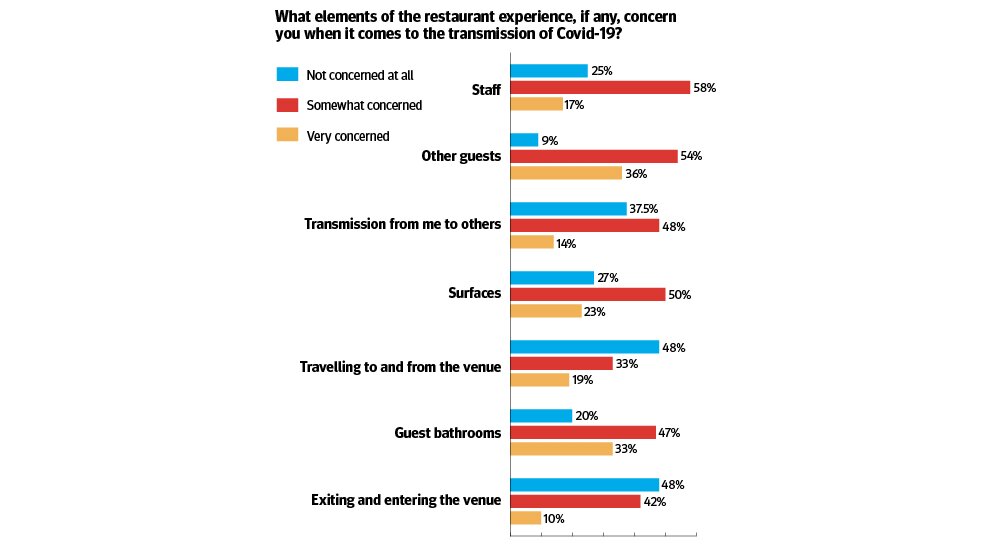
Wareing’s teams are planning for reopening, drawing up menus and looking at the staffing levels the restaurant will be able to sustain.
The chef is dubious about the likelihood of a green light for reopening being given in early July and is anticipating that it will be September, when children are expected to return to school in significant numbers, and with the return of business in central London dependant on people returning to work and tourism resuming.
He explains: “My eldest son is 18 and if a pub or bar opened tonight he’d be there with his mates. But, the further through the generations you go to the 40-, 50-, 60-year-olds, they will be more cautious. I think people will go to local restaurants more and destinations will be the harder ones to get up and running.
“Right now, central London has a big problem. The City is a ghost town and there is no one in the West End because there’s no tourism. Those two areas are going to stay like that for quite a long time, certainly while there is a two-week quarantine [for travellers] in place. When the City and airports reopen, that’s when we start to get back to normality.”
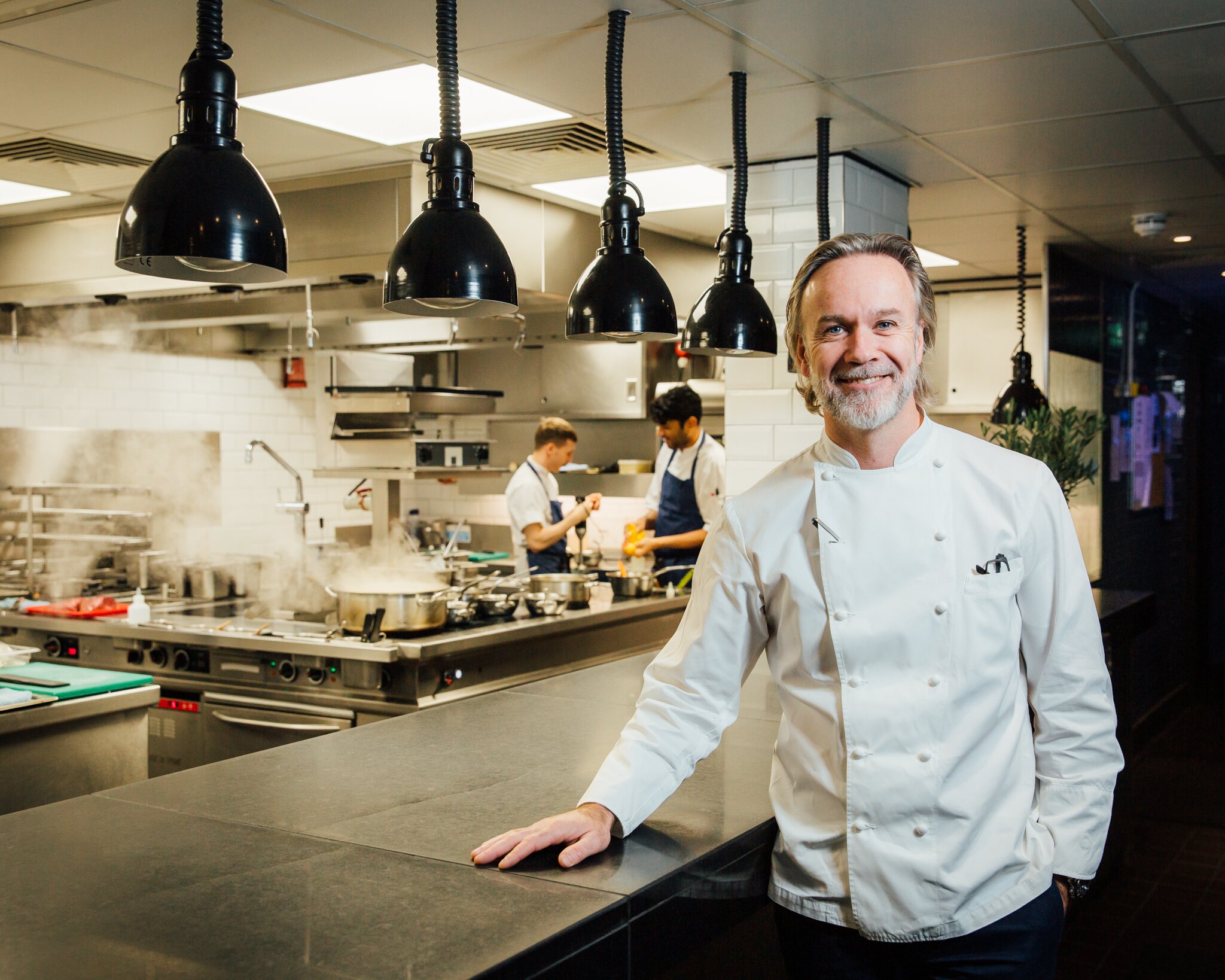
Wareing is under no illusions to how rocky the road ahead is, saying “our industry is in such big trouble and there will be quiet casualties as the months go by,” but the results of this initial survey have shown what will be chinks of light for many operators and he is glad to share them.
He adds: “I think people are concerned but there’s more of a drive to move back to going out than there is a desire not to, which is good.
“When we asked about spending habits, 54.3% said they would be spending the same, compared to 34.2% spending less and some spending more. That’s great, happy days – we’ll open that bottle of wine if they want to come and buy it.
“I hope the results help people, but it doesn’t cover the whole industry. The results are from my guests, but everyone should find out what their guests are looking for.”
Wareing: ‘There are more steps to go through’
Wareing has said that while ensuring consumers will be there to fill seats and feel comfortable doing so is key, there are many more challenges that restaurateurs will need to overcome.
To face this myriad of problems – he points out during the interview that every avenue of conversation poses further complications for operators – the restaurateur believes government must pay closer attention to the intricacies of hospitality.
He says: “I believe the government should segregate industries. If we’re given a chance we’ll open our doors, do our best and work, but we can’t do it with such big costs.
“If the government don’t do that, there will be huge problems.”
Among the measures the restaurateur believes will be helpful is a reduction in VAT while the industry gets back on its feet.
He adds: “I hope we all survive; I think we should all be united and help each other with creative thinking. You hear more from people at the moment than you do normally and it’s been nice to hear people’s views.”
We should all be united and help each other with creative thinking



